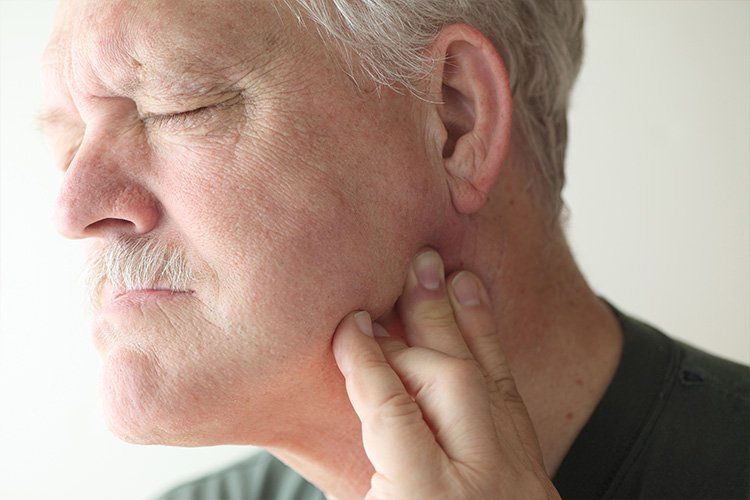TMJ and TMD
What is TMD (Temporomandibular Disorders)?
Temporomandibular Disorders (TMD) are a group of conditions that can cause pain or dysfunction in the jaw joints and muscles that control jaw movement. TMD may be caused by a variety of factors, such as trauma to the jaw joint, arthritis, teeth grinding, or misalignment. It can develop gradually and without any obvious cause.
TMD may not be life-threatening but it can have a significant impact on your comfort and dental health if untreated. Mount Laurel Dental & Implant Center has effective solutions to manage TMD, and relieve the pain and discomfort that it can cause.
- Pain in the jaw
- Facial pain
- Headaches
- Neck pain
- Clicking or popping when moving the jaw
- Swellings on the side of the face
- Muscle spasms in the jaw
- Jaw locks or movement is limited
Common Symptoms of TMD
1. Jaw Pain or Tenderness
Describe the item or answer the question so that site visitors who are interested get more information. You can emphasize this text with bullets, italics or bold, and add links.2. Clicking or Popping Sounds
Describe the item or answer the question so that site visitors who are interested get more information. You can emphasize this text with bullets, italics or bold, and add links.3. Limited Jaw Movement
Describe the item or answer the question so that site visitors who are interested get more information. You can emphasize this text with bullets, italics or bold, and add links.4. Headaches and Earaches
Describe the item or answer the question so that site visitors who are interested get more information. You can emphasize this text with bullets, italics or bold, and add links.5. Facial Pain
TMD can cause chronic facial pain. This is especially true in the area around the jaw. The discomfort can be felt on the cheeks or neck and shoulders, depending on how severe the condition is.
6. Difficulty Chewing
TMD can cause pain when you eat or if your bite doesn't feel right. Joint dysfunction can make chewing difficult.
Cause of TMD
A variety of factors can cause TMD. At Mount Laurel Dental & Implant Center, Dr. Suh evaluates each patient's TMD and determines the best treatment. Some of the most common causes are:
1. Injury or Trauma
Direct trauma to the face or jaw, such as an injury during sports or an accidental blow, can result in TMD. Dislocations or fractures may cause lasting TMJ damage, leading to chronic pain and functional limitations.
2. The Teeth Grinding and Clenching (Bruxism)
Bruxism occurs when you grind your teeth, or clench your mouth while asleep. This repetitive movement places excess stress on the TMJ. It can lead to muscle tension and joint problems.
3. Arthritis
Arthritis can cause cartilage to degrade in the TMJ. This can lead to pain, stiffness and reduced jaw mobility.
4. Misalignment in the Bite
The jaw can be strained when the upper and bottom teeth are not aligned properly. It is trying to compensate for this misalignment. This can lead to wear and tear of the TMJ over time.
5. Stress and Muscle Tension
Stress can increase muscle tension, which could contribute to TMD. Stress can cause people to clench or grind their teeth, putting strain on their TMJ.
Diagnosis of TMD
A qualified dentist such as Dr. Suh can diagnose if you have TMD. We use advanced diagnostic tools at Mount Laurel Dental & Implant Center to determine the condition of your jaw and the best treatment.
During the evaluation, Dr. Suh will:
- Examine your medical and dental histories.
- You can ask about the symptoms you are experiencing and when they started.
- Examine your jaw to determine if it is tender, making clicking noises, or exhibiting restricted movement.
- Imaging tests such as x-rays can be used to examine the joint and its surrounding structures.
After a diagnosis has been made, Dr. Suh will review your options for treatment and create a plan that is tailored to your needs.


